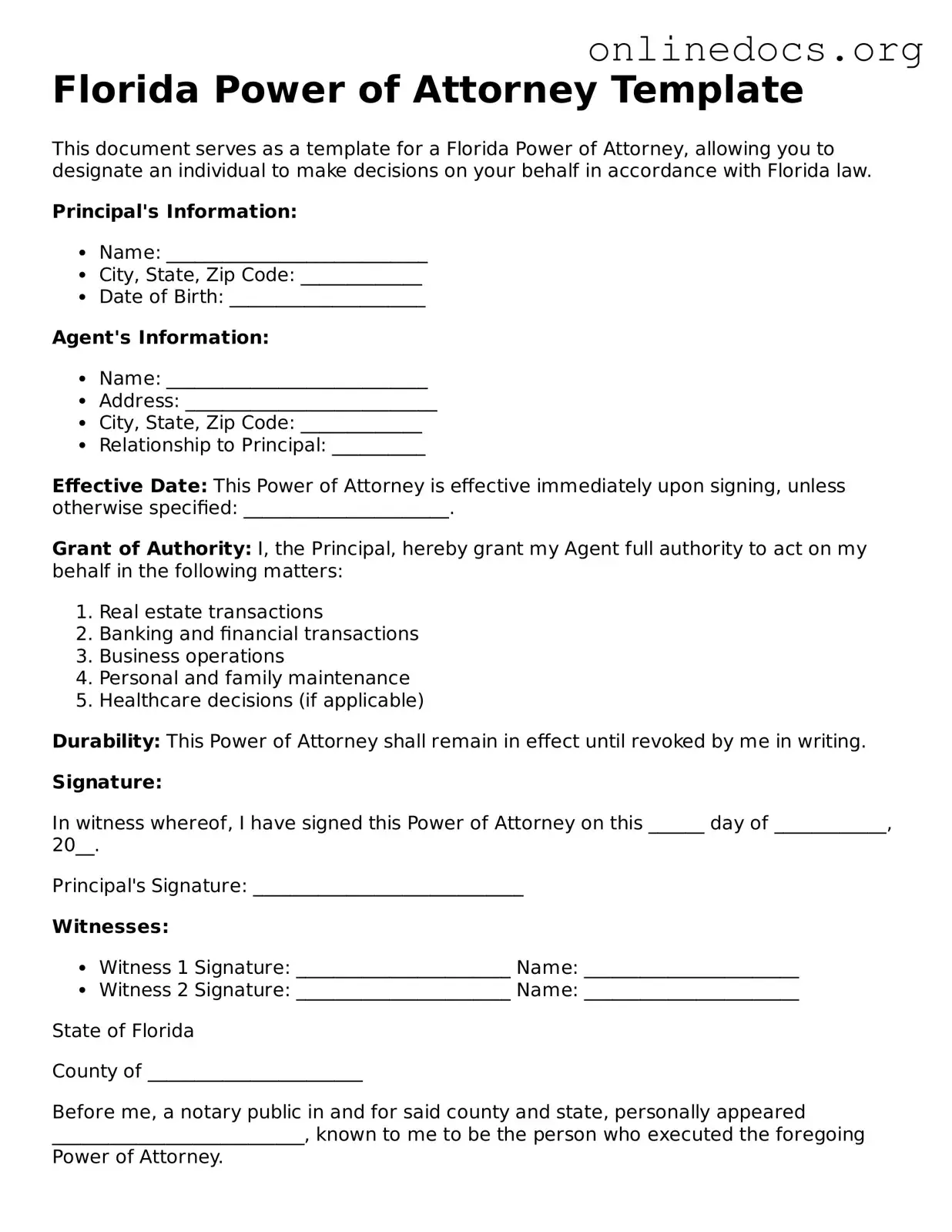The Florida Durable Power of Attorney is similar to the standard Power of Attorney but with a key distinction. A durable Power of Attorney remains effective even if the principal becomes incapacitated. This feature is crucial for individuals who want to ensure that their financial and legal matters are handled seamlessly, regardless of their health status. It provides peace of mind, knowing that trusted individuals can act on their behalf during challenging times.
The Medical Power of Attorney is another document closely related to the Florida Power of Attorney. While the general Power of Attorney typically focuses on financial and legal matters, the Medical Power of Attorney specifically grants someone the authority to make healthcare decisions. This document is vital for ensuring that medical preferences are respected when a person cannot communicate their wishes due to illness or injury.
A Living Will is similar in purpose to the Medical Power of Attorney but serves a different function. It outlines an individual’s preferences regarding end-of-life medical treatment. This document can work alongside a Medical Power of Attorney, providing clear guidance on the types of medical interventions a person wishes or does not wish to receive. It alleviates the burden on family members during emotionally challenging times by clarifying the individual’s wishes.
To ensure your wishes are honored after you pass, it is essential to understand the intricacies of creating a thorough Last Will and Testament, which specifies the allocation of your assets and care arrangements for dependents. For guidance on drafting your own document, refer to this informative overview on Last Will and Testament creation.
The Springing Power of Attorney is another variant that shares similarities with the Florida Power of Attorney. This document only becomes effective upon the occurrence of a specific event, typically the principal’s incapacitation. It offers a layer of control, allowing individuals to decide when their designated agent can step in, thus ensuring that authority is granted only when truly necessary.
The Financial Power of Attorney is focused specifically on financial matters, making it akin to the Florida Power of Attorney. This document allows an agent to manage financial affairs, including banking transactions, real estate decisions, and tax matters. It is essential for individuals who want to designate someone to handle their finances in their absence or incapacity, ensuring that their financial responsibilities are met without interruption.
The General Power of Attorney is a broader version of the Florida Power of Attorney. It grants extensive authority to an agent to act on behalf of the principal in a wide range of matters, including financial, legal, and business decisions. This document is beneficial for individuals who want to give someone comprehensive power to manage their affairs, making it a versatile option for many situations.
The Limited Power of Attorney serves a specific purpose, much like the Florida Power of Attorney but with restrictions. This document allows an agent to act on behalf of the principal for a defined period or for particular transactions. It is ideal for situations where the principal needs assistance with specific tasks, such as selling a property or managing a business deal, without granting full authority.
The Revocation of Power of Attorney is a crucial document that allows individuals to cancel a previously granted Power of Attorney. This document is essential for those who want to ensure that their previous decisions regarding agents are no longer in effect. It provides a straightforward way to regain control over one’s affairs and is often used when circumstances change or trust in the agent diminishes.
The Advance Healthcare Directive combines elements of both the Medical Power of Attorney and Living Will. This document allows individuals to outline their healthcare preferences and appoint someone to make medical decisions on their behalf. It is a comprehensive approach to healthcare planning, ensuring that personal values and wishes are respected in medical situations where the individual may not be able to communicate them.
